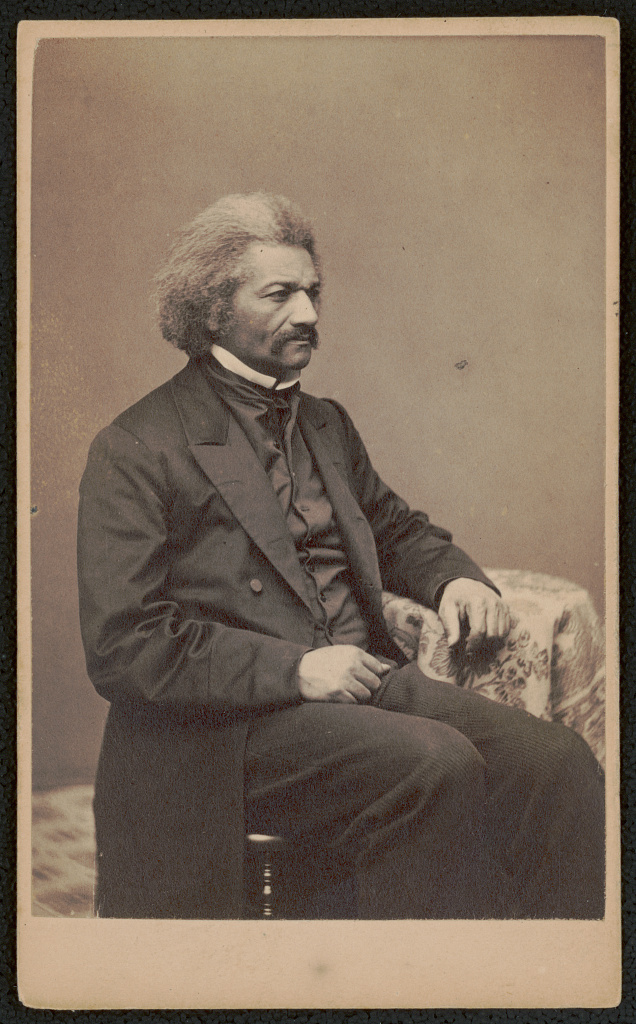
This three-quarter length portrait of Frederick Douglass seated by B.F. Smith & Son was taken in January or February of 1864 in Portland, Maine. It is similar to the photograph of Douglass shot by Samuel Root in Dubuque, likely in 1866. Retrieved from the Library of Congress, https://www.loc.gov/item/2020633537/
By John T. Pregler
The years immediately after the end of the American Civil War in 1865, U.S. President Andrew Johnson and the Republican controlled U.S. Congress turned its attention to implementing the late President Abraham Lincoln’s Southern Reconstruction policies. Johnson, along with the Democrats and conservative Republicans in Congress wanted a quick path to reconstruction through pardon and absolution of the Southern States. At the same time, the “Radical Republicans” in the United States, including Dubuque’s own U.S. Rep. William Boyd Allison were pushing for harsher terms for Southern States and those who participated in the Confederacy during the recent War of the Rebellion.
As U.S. cities both North and South began to settle back into life without civil war, the Young Men’s Literary Association of Dubuque sponsored the city’s Winter Course of Lectures program.
As the Midwest and western states were being settled throughout the 19th century, one of the first forms of community entertainment that also provided a platform for community discussion of important topics of the day, as well as for speeches of an intellectual nature, was the local theater and lyceum, or lecture hall.
Dubuque’s Young Men’s Literary Association sponsored such speakers as German revolutionary and Union Gen. Carl Schurz, who was an eastern newspaper editor at the time of his visit; New England abolitionist attorney Wendell Phillips; and “Old Man Eloquent,” Frederick Douglass, the African American abolitionist and suffragist.
Douglass, a celebrated orator, author and former slave who “stole himself” from bondage, appeared in Dubuque no less than three times between 1865 and 1870 as he traveled the national lecture circuit. Douglass first appeared in Dubuque on April 20, 1866. At the time he was lecturing on the need for a favorable Reconstruction and on African American suffrage. Johnson had vetoed the Freedman’s Bureau Bill on Feb. 18, 1866, just two months earlier. The nation was now speaking about the impeachment of a president. And Douglass, the “great agitator,” a label he believed to be a call of duty, had a few thoughts on these matters he wished to share with anyone that would listen. And come to listen they did.
TO READ THE ENTIRE STORY AND OTHER FASCINATING STORIES ABOUT IOWA HISTORY, subscribe to Iowa History Journal.
